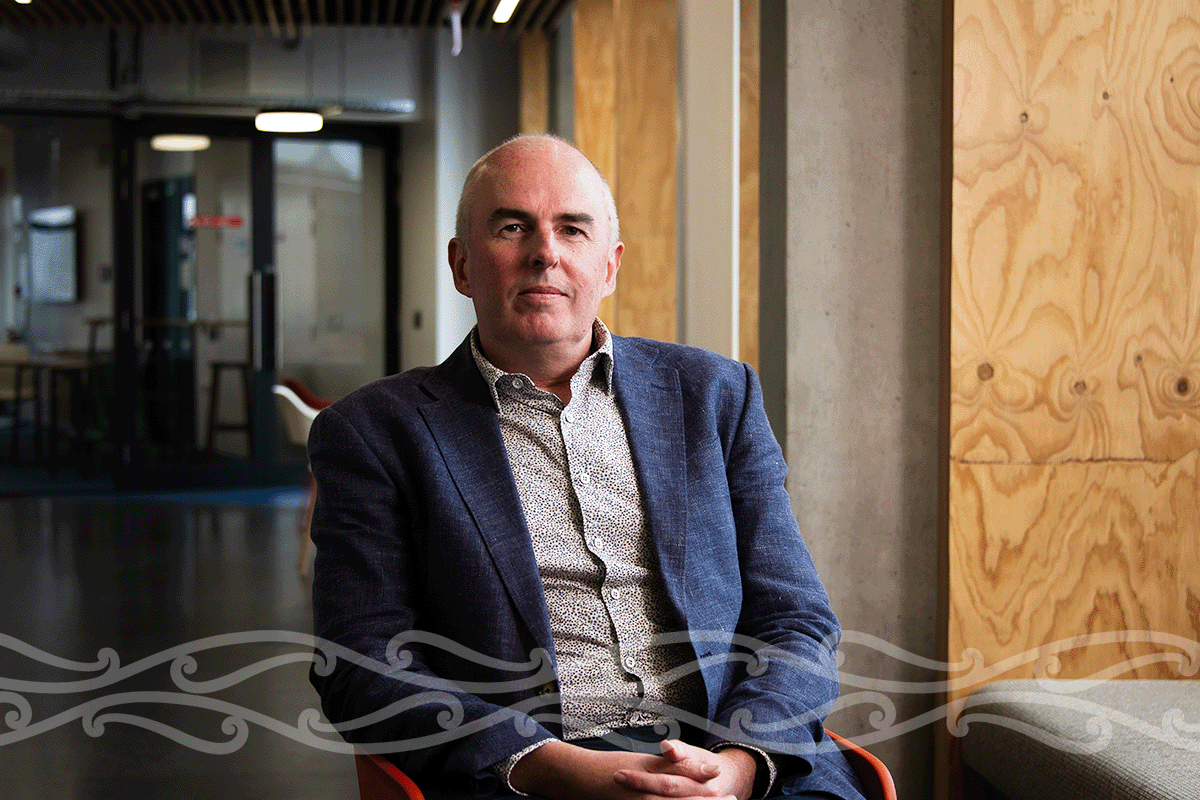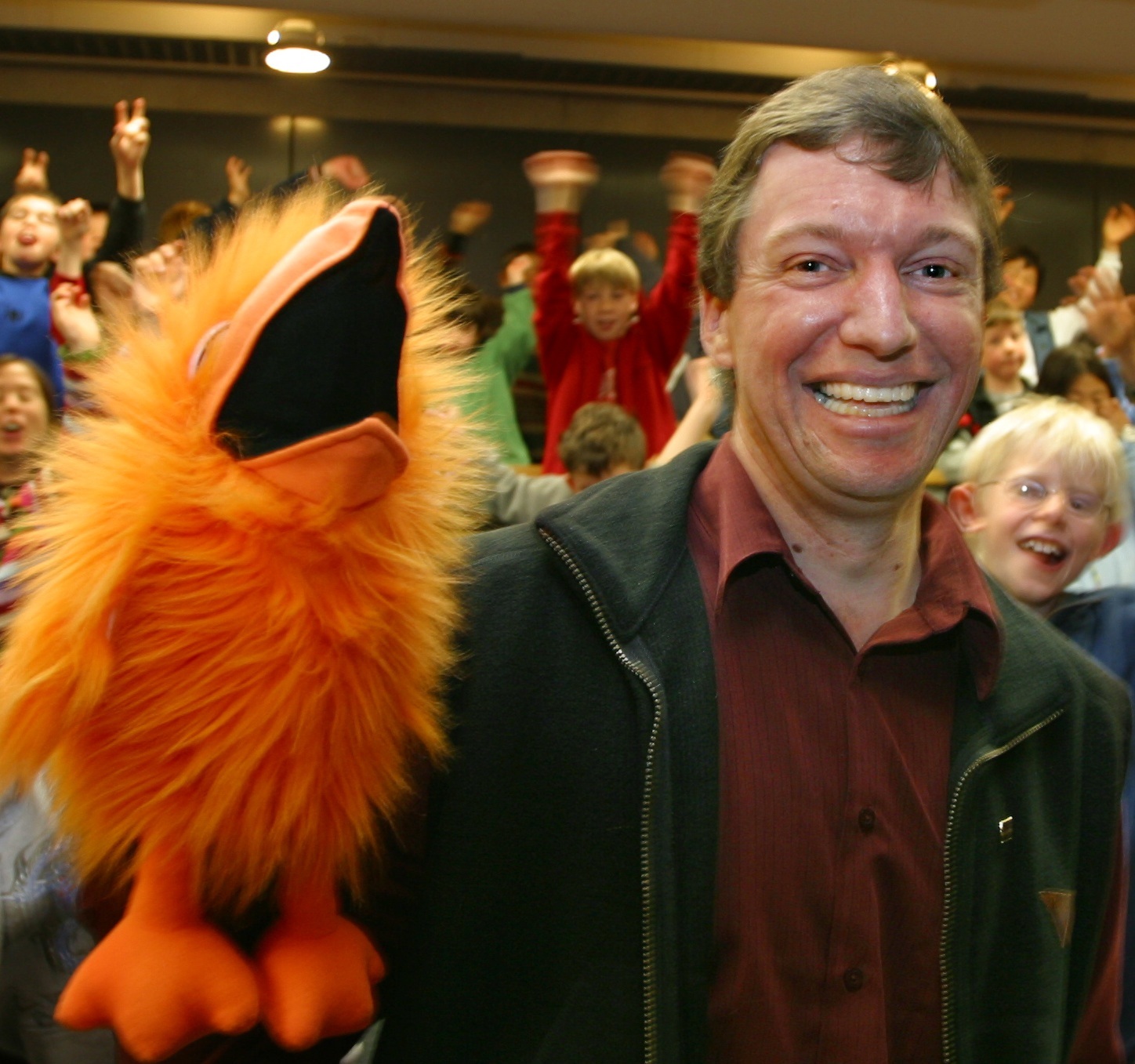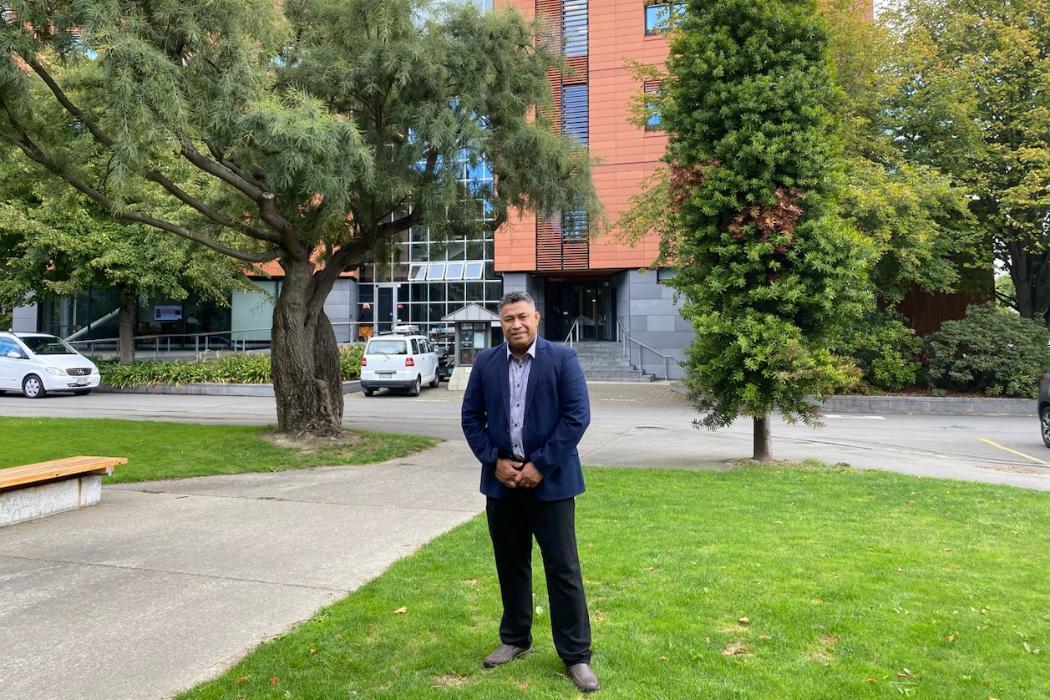The 2023 Dan Walls Medal was presented to UC Professor David Wiltshire (pictured right) by Professor Joachim Brand at an awards ceremony last night.
Te Whare Wānanga o Waitaha | University of Canterbury (UC) Theoretical Physics Professor David Wiltshire was presented with the 2023 Dan Walls Medal for his significant contributions to gravitational physics and cosmology at a ceremony in Auckland last night.
The top award of the New Zealand Institute of Physics (NZIP), the Dan Walls Medal is presented biennially to the physicist who is deemed to have made the greatest impact, both nationally and internationally, in their research field through predominantly New Zealand-based research.
Dark energy is cosmology’s biggest mystery. Professor Wiltshire, who was once a student of Professor Stephen Hawking at Cambridge University, is seeking to find out more about the space that makes up 70% of the universe, according to standard theories. Seeking an answer, he re-examined the foundations of Einstein's gravity theory.
Professor Wiltshire’s predictions will be tested by the European Space Agency's Euclid satellite, which launched on 1 July 2023 on a Falcon 9 rocket.
This marks the second time in a row a University of Canterbury academic has won the prestigious physics award, with UC Physics Professor Jenni Adams becoming the first woman to win the Dan Walls Medal in 2021.
The 2023 Dan Walls Medal citation reads:
Professor Wiltshire has made significant contributions to gravitational physics and cosmology. In particular, he has re-examined the foundations of Einstein's theory of gravity, in seeking an answer to cosmology's biggest mystery: ‘dark energy’, which standard theories say makes up 70% of the present universe. Professor Wiltshire's proposal incorporates a modification of the average geometry produced by complex matter structures. Stars, galaxies, and galaxy clusters – where space is not expanding – are grouped into expanding filaments, sheets and knots. These thread and surround huge very empty expanding voids in what is termed the ‘cosmic web’. Professor Wiltshire’s proposed timescape cosmology refines our understanding of the difference between motion and expansion on these largest scales. It yields testable predictions which will be probed by the European Space Agency's Euclid satellite, launched on 1 July 2023 on a Falcon 9 rocket.










